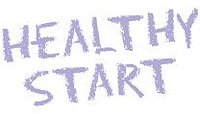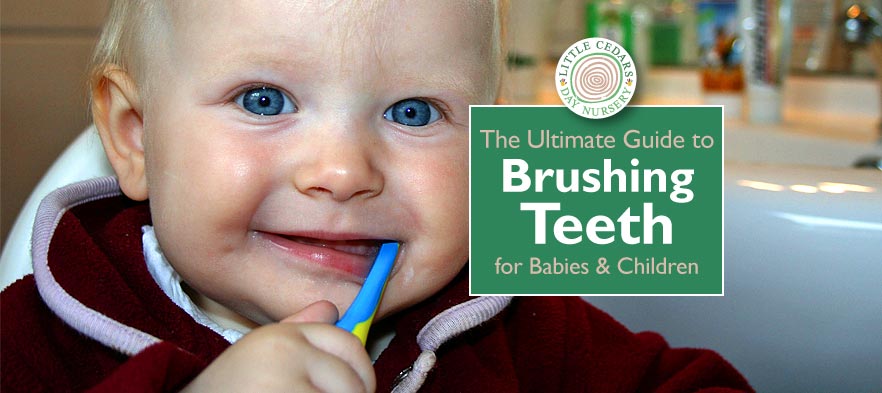
It’s important for children to start their teeth cleaning regime right from the moment their first tooth appears. Good oral hygiene is important for teeth, health, and ultimately self-confidence when they’re a little older. It’s therefore essential for children to get used to cleaning teeth properly and visiting their dentist right from their early years.
When & How To Brush Baby/Toddler Teeth
Start brushing your baby’s teeth as soon as they get their first tooth. On average, this is usually around 6 months although it does vary. Here is a good approach:
Teeth brushing can be made more fun for your child. For example, with music, by singing a song to your baby/toddler, making it part of a game, cleaning your own teeth at the same time or using a fun timer.
There’s a Phone App for Brushing Teeth!
The NHS even recommends a teeth brushing phone app that parents & carers can download — called ‘Brush DJ’ in the phone app stores (available for IOS and Android). It’s free (correct at time of writing), plays 2 minutes of fun music while the child’s teeth are brushed — and a whole lot more. Developed by a dentist, the timer’s purpose is to teach the child that it’s not a race — quite the opposite in fact. Ideally they need to give every tooth and gum area individual attention to ensure everything is very well cleaned. 2 minutes is a good benchmark for the whole teeth brushing exercise, so the app is ideal. It gives useful information, for example about cleaning in between teeth, and allows users to set reminders for dentist visits and suchlike.
* Toothpaste Type & Fluoride Content
Some parents may be aware of some negative information circulating about fluoride. For those who are really concerned, there are fluoride-free toothpaste options. However, in contrast, the UK’s NHS recommends¹ using fluoride toothpaste and suggests the following guidelines:
| Up to 3 years of age: | Use children’s fluoride toothpaste containing no less than 1,000ppm of fluoride (check label) or family toothpaste containing between 1,350ppm and 1,500ppm of fluoride. | Use only a smear |
| Children 3 to 6 years of age: | Use children’s fluoride toothpaste containing no less than 1,000ppm of fluoride (check label) or family toothpaste containing 1,350ppm to 1,500ppm of fluoride. | Use a pea-sized amount |
| Children aged 7 years & over: | Use fluoride toothpaste containing 1,350ppm to 1,500ppm of fluoride (check label). | Use a pea-sized amount |
Safety Considerations
- Always supervise babies and toddlers — they will need your help when they’re very young.
- Don’t allow your baby or toddler to play with the toothbrush when it’s not being used. They should also not walk or run around with it, particularly with it in their mouth, as this would be a huge safety risk.
- Discourage your child from swallowing or eating the toothpaste and never allow them to lick paste from the tube.
Take Children to the Dentist Early On
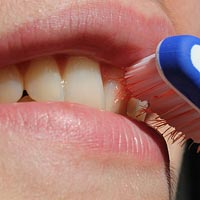 It’s important to get children used to visiting the dentist and for this to be a positive experience. Dentists can highlight any potential problems early on and regular visits will also ensure that children realise the importance of teeth cleaning and oral hygiene as they grow. Starting early is also more like to avoid the possibility of them being nervous about visiting the dentist (if you are nervous yourself, try not to let this show as it could project the fear onto your child). NHS dental treatment is free for UK children. Find a dentist here.
It’s important to get children used to visiting the dentist and for this to be a positive experience. Dentists can highlight any potential problems early on and regular visits will also ensure that children realise the importance of teeth cleaning and oral hygiene as they grow. Starting early is also more like to avoid the possibility of them being nervous about visiting the dentist (if you are nervous yourself, try not to let this show as it could project the fear onto your child). NHS dental treatment is free for UK children. Find a dentist here.
Go Easy on Sugar
Natural sugars are found in things like fruit, fruit juice, honey and even in whole milk. Added sugars are types of sugar that have been added as ingredients to foods by manufacturers. These can include sucrose, glucose, dextrose, maltose, fructose, hydrolysed starch, inverted sugar syrup, raw sugar, brown sugar, cane sugar, muscovado sugar and so on.
Sugar and tooth decay go hand-in-hand
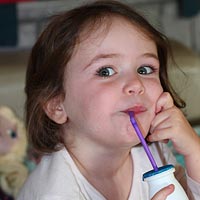 Sugar and tooth decay go hand-in-hand, especially if too much sugar is in the diet and/or if toothbrushing isn’t regular and thorough. The amount of potential decay is also made worse the longer sugar stays on the teeth. Cutting down on sugar intake will help limit the problem, as will a good tooth brushing regime. Here’s what parents and carers of babies and young children can do:
Sugar and tooth decay go hand-in-hand, especially if too much sugar is in the diet and/or if toothbrushing isn’t regular and thorough. The amount of potential decay is also made worse the longer sugar stays on the teeth. Cutting down on sugar intake will help limit the problem, as will a good tooth brushing regime. Here’s what parents and carers of babies and young children can do:
- Avoid giving little ones drinks with added sugars. Milk and water are usually best.
- Check labels and ingredients so you know your child’s food and drink is not laced with sugars. That includes pre-prepared baby foods.
- Encourage them to eat savoury foods rather than sugary ones.
- Avoid giving children sweets and biscuits, except as occasional treats. Ask friends and family members to do the same.
- If you give your little one fruit juice, limit it to once in the day (150ml) as part of their ‘five a day’ and, better still, dilute it with water (1 part fruit juice to 10 parts water).
- Limit any sweet food and drink to meal times.
- Brushing teeth after sweet foods and drinks is a good habit to get into.
- If you need to buy medicine for your baby or child, as the pharmacist if a sugar-free version is available.
- If your child needs a drink at night, only give formula or breast milk, or water. Sugar contained in milk is less likely to cause tooth decay so does not need to be avoided.
- Avoid the use of bottles and valved bottles (from the age of 6 months) when giving children fruit juice or squash. Free-flowing alternatives like beakers mean any sugar or acid contained in the drink is less likely to bathe the teeth in sugar for so long. Acids found in fruit juice or squash can also harm teeth, by the way.
Getting it Right – the Benefits for Your Child
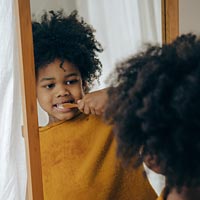 Getting the approach right means healthier teeth and gums, fresher breath, better looking teeth, more self-confidence and potentially better health overall as the child grows up. Setting good teeth cleaning and tooth hygiene habits early on means children are more likely to continue the good work as they grow into adulthood. This includes regular, fear-free visits to the dentist for check-ups.
Getting the approach right means healthier teeth and gums, fresher breath, better looking teeth, more self-confidence and potentially better health overall as the child grows up. Setting good teeth cleaning and tooth hygiene habits early on means children are more likely to continue the good work as they grow into adulthood. This includes regular, fear-free visits to the dentist for check-ups.
Little Cedars Nursery, Streatham
This guide was brought to you by Little Cedars Nursery. We are an outstanding nursery and pre-school in Streatham, near Balham, Tooting and Furzedown in London SW16. We have just a few spaces available at time of writing so, if you are looking for high quality nurseries or childcare in this area, please get in touch:



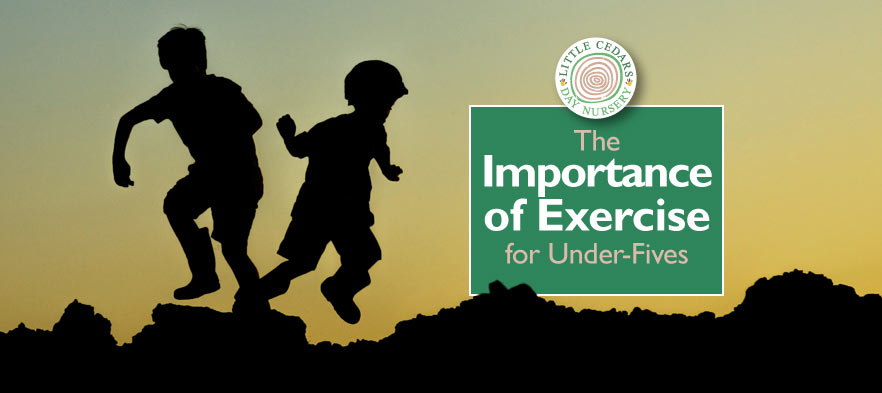
 What are the Recommendations for Early Years Exercise?
What are the Recommendations for Early Years Exercise?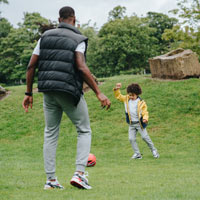 What are the Benefits of Early Years Exercise?
What are the Benefits of Early Years Exercise?
 How Parents can Help
How Parents can Help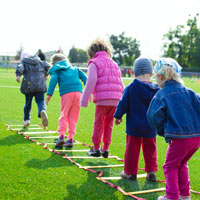 Active Play & Exercise at Little Cedars Day Nursery, Streatham
Active Play & Exercise at Little Cedars Day Nursery, Streatham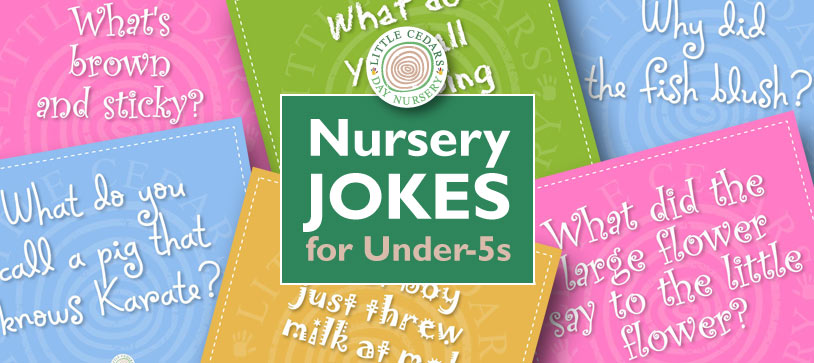
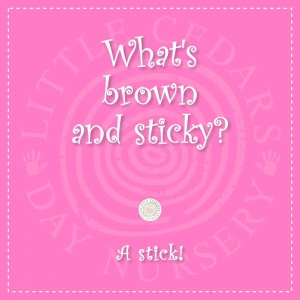
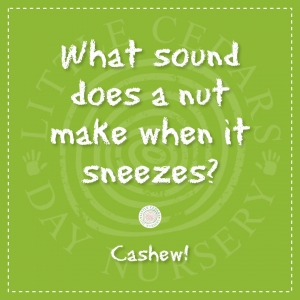

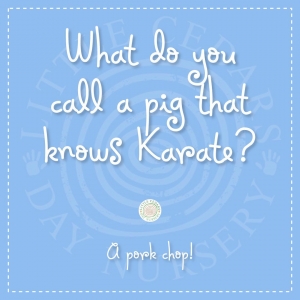
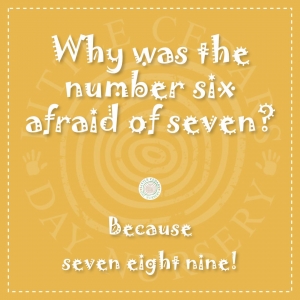
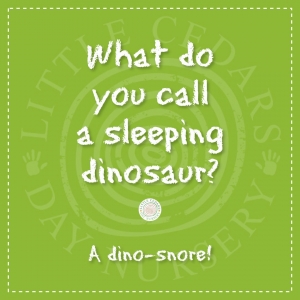
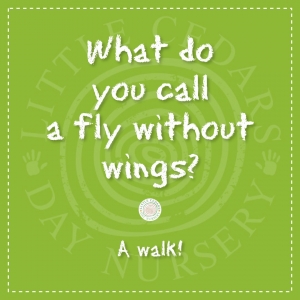
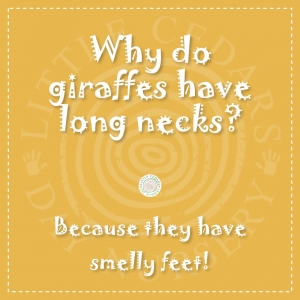

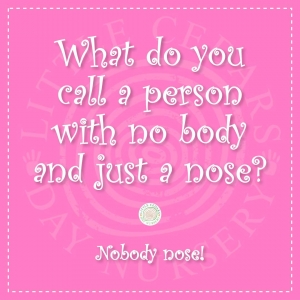

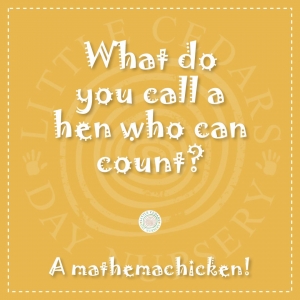
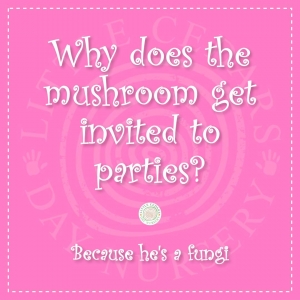
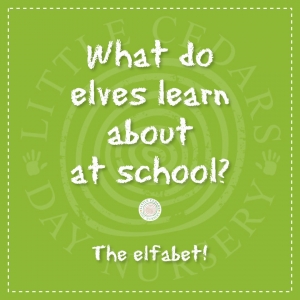
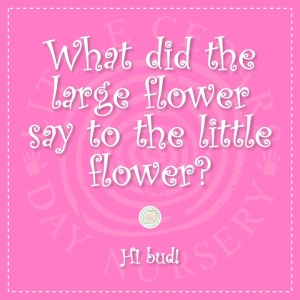
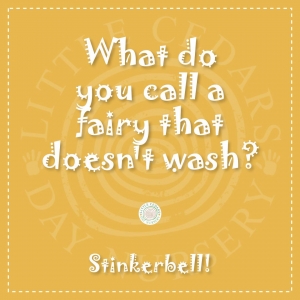


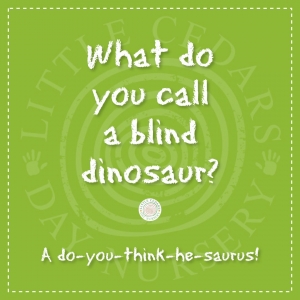

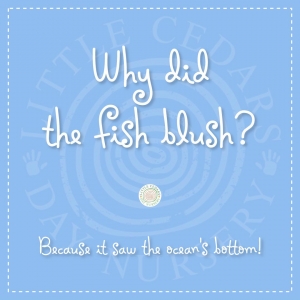
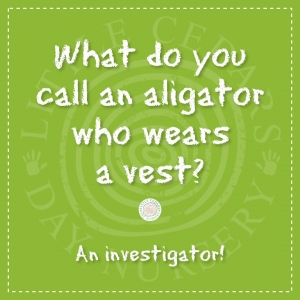

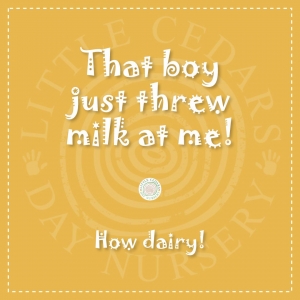
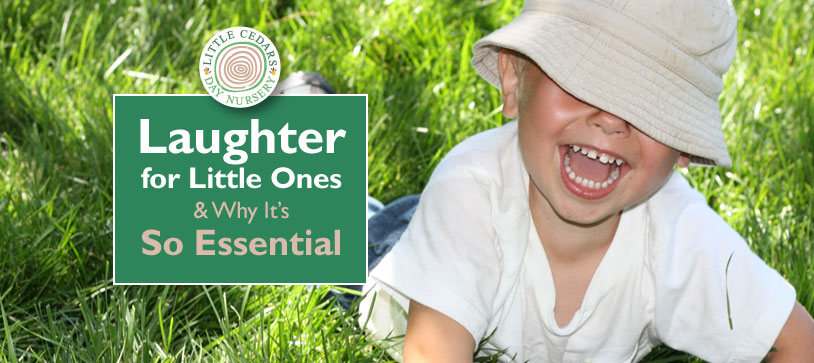
 Let’s first go back to the beginning. A sense of humour is apparently a learned aspect of a person’s character, to a fair extent. It’s something that develops and changes as a child gets older, rather than something they’re born with as a result of their DNA. As such, it’s important that babies and young children are given every opportunity to enjoy laughter and, while doing so, have fun with those around them. Laughing also is also closely linked to happiness, and being happy is, of course, priceless.
Let’s first go back to the beginning. A sense of humour is apparently a learned aspect of a person’s character, to a fair extent. It’s something that develops and changes as a child gets older, rather than something they’re born with as a result of their DNA. As such, it’s important that babies and young children are given every opportunity to enjoy laughter and, while doing so, have fun with those around them. Laughing also is also closely linked to happiness, and being happy is, of course, priceless. Laughing helps children to develop better self-esteem;
Laughing helps children to develop better self-esteem;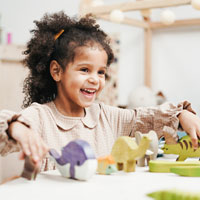 Improves mental health;
Improves mental health;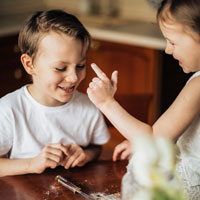 The staff at
The staff at 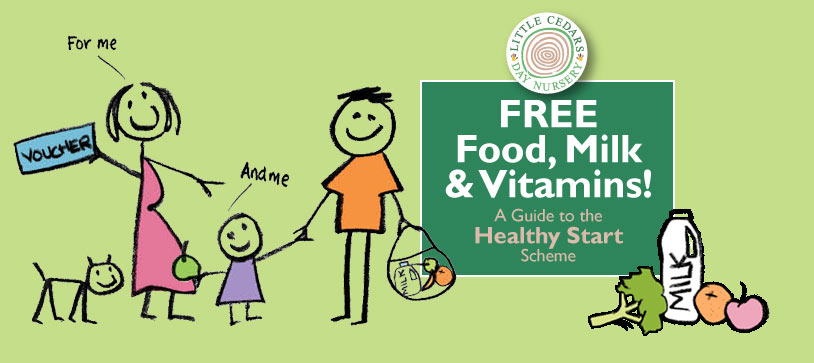
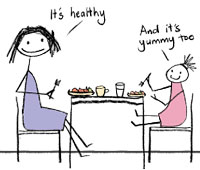 Are you pregnant, or a parent with a child under four? If so, your family may be eligible for free healthy food, milk and vitamin supplements. In England, some of these free items are available under the ‘Healthy Start’ scheme, which we’ll explain in this quick-start guide.
Are you pregnant, or a parent with a child under four? If so, your family may be eligible for free healthy food, milk and vitamin supplements. In England, some of these free items are available under the ‘Healthy Start’ scheme, which we’ll explain in this quick-start guide. Eligible individuals can get the following, absolutely free:
Eligible individuals can get the following, absolutely free: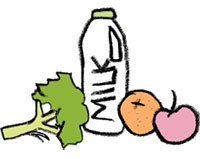 The infant formula milk:
The infant formula milk: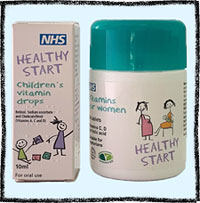 These free vitamin supplements are important for pregnant women, breastfeeding mums, babies and young children because many are deficient in them at this stage in their lives.
These free vitamin supplements are important for pregnant women, breastfeeding mums, babies and young children because many are deficient in them at this stage in their lives.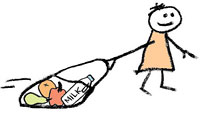 In order to be eligible for Healthy Start vouchers, you need:
In order to be eligible for Healthy Start vouchers, you need: